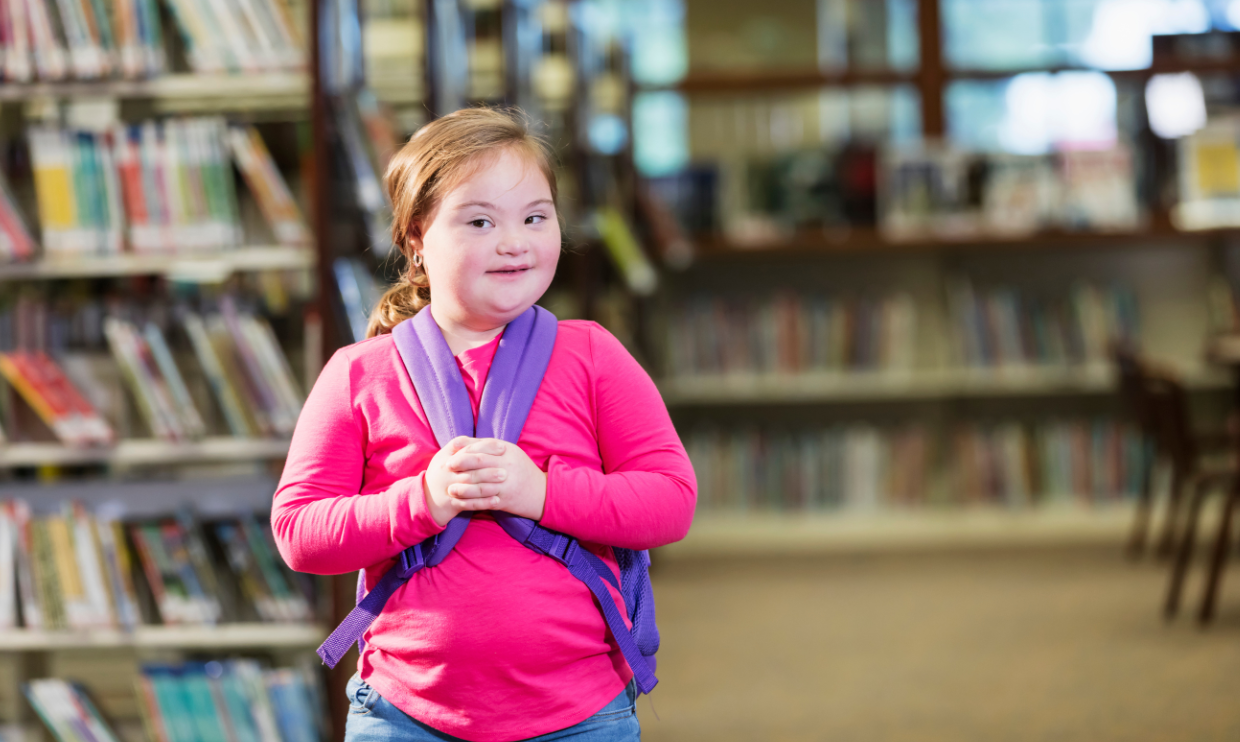“‘Disability’ is not a bad word. Use it. There’s no need to replace it with euphemism; use it respectfully.” — Diana Pastora Carson, creator of Beyond Awareness
Talking about disabilities can be tricky. As parents, it’s natural to feel uncertain about the right words to use when discussing our children’s disabilities, whether it’s with providers, a classroom of teachers and students, or our kids themselves. Often, it can feel like an uphill battle facing ableism, “disability inspiration” tropes, and more. But “know that you will not regret standing up for your child,” Kelley Coleman, author, parent, and advocate, reassures us. If you let your efforts be motivated by love for your child, figure out what advocacy looks like for you, learn to tell your story in your own way, and are kind to yourself in the process, you’ll have the tools in hand to advocate for what your kiddo needs.
While the fight for change via our child’s IEP is an ongoing effort for many of us, there’s still a lot that needs to be addressed in changing mindsets and shifting towards a more accepting and inclusive culture. If you’re wondering, “Where do I start?” — we have expert tips, resources, and practical how-to’s to help you boost your confidence in supporting your child’s journey, and be better able to incorporate disability acceptance, diversity, and inclusion into your daily conversations and the fabric of your home and school culture year-round.

Disability awareness months and days are great opportunities to get involved in your community and your child’s school. Here’s your one-stop shop of Disability Awareness Throughout the Year to celebrate neurodiversity and developmental disabilities.
Do you want to host a disability acceptance day, event, or activity at your child’s school but are not sure where to start? We’ve got you covered in our school disability acceptance guide. We explore the 5 topics to address when talking about disability acceptance, sample disability acceptance activities for students of all ages, and more. Find it all in our article Nurturing Disability Acceptance in Your Child’s School.


When we’re talking about disability, a few topics that often come up include person-first or identity-first language, the “disability inspiration” trope, and what it means to “overcome” a disability. Read our article How to Talk About Disability where we break down some of the issues around disability language to help us all better understand the disability community and how to change the conversation.
Want to teach kids about their disability to help them build self-confidence, self-discovery, and advocacy? Check out advice from experts about how to teach kids disability and medical advocacy skills, medication management, and more in our article Disability & Medical Advocacy: Teaching Functional Life Skills.
Did you know that understanding the jargon and language used in your child’s IEP can help you to be a better advocate for your child — and help your child can be a better advocate for themselves? Learn How Plain Language Writing Can Help Your Child Be an Advocate, including resources to share with your child and IEP team during conversations about advocacy.
Explore resources to help you help your kiddos along their self-empowerment journeys, including a list of books, TED Talks, and online resources to get you started. Check out these great Kids’ Resources on Disability Awareness and Acceptance that can help spark a discussion about disability acceptance and self-advocacy! If you’re searching for some advocacy books for yourself to read this fall, check out our Parent Resources on Disability Awareness and Acceptance!

As one parent told us,“Thank you so much for all of this information. So far, I’ve ordered some of the books about autism for us to read as a family. I think this has helped me see how empowered we can all be with acceptance and understanding.”

The UndividedApp YouTube channel is your go-to educational resource hub for everything related to supporting kids with disabilities. From education and healthcare, to advocacy and daily life, we’ve got you covered. Join our community, connect with experts, and discover the resources you need to help your child thrive. Subscribe now for a world of support.
- Author and parent Kelley Coleman has a great example of involving our kids in advocacy by normalizing their assistive technology like AAC. Check it out on YouTube→
- We asked some kiddos in our community how they feel about returning to school. Don’t miss out! Watch on Instagram→
- Do you have any favorite books or other resources to share about disability awareness and advocacy? Let us know by posting in our Facebook group for parents!
- Feel free to share any and all of these disability resources to help encourage more acceptance and advocacy in your network! Tag us on LinkedIn when you share→

Undivided Conversations: Disability Awareness
Tune into our Undivided Conversations Friday, August 30 at 12:00 p.m. PDT to hear Karen Ford Cull, education advocate and content specialist, and Diana Pastora Carson, creator of Beyond Awareness, discuss disability awareness and the importance of inclusion. Watch the stream on our Facebook page!
Office Hours with Education Advocate Karen Cull
Make sure your child is meaningfully included in the classroom, in extracurriculars, and beyond! On Wednesday, September 4, 12:00 p.m.–1:00 p.m. PDT, Education Advocate Karen Cull will be available to answer questions specifically about inclusion in education. Bi-weekly Office Hours are virtual Q&A sessions with experts that are open to Undivided members only, so if you’d like to attend, sign up here to begin your free Kickstart!
Back to School: One-Month IEP Check-in — RSVP now!!!
Looking for IEP help? Make sure to attend our upcoming live virtual event! Join us Thursday, September 12, 1:00 p.m.–2:00 p.m. to hear Education Advocate Lisa Carey’s tips for checking in with your IEP team at the one-month meeting to make sure your child is getting all the support written into their IEP! Get a link to the event when you RSVP here→


























